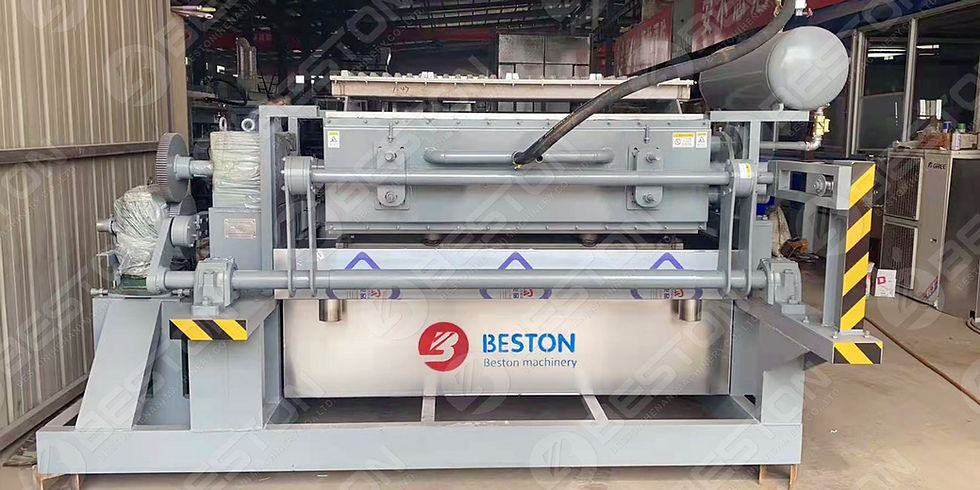Nursery Tray Making Machine vs. Plastic Packaging: A Comparative Analysis
- june11433
- Mar 19, 2025
- 2 min read
The shift toward sustainable agriculture has intensified discussions on packaging materials, particularly in seedling cultivation. Traditional plastic trays, while widely used, pose environmental concerns, prompting the adoption of biodegradable alternatives. A nursery tray making machine offers an eco-friendly solution by producing molded fiber trays from recycled materials. Comparing these two options reveals key differences in cost, durability, sustainability, and long-term business viability.
Cost Considerations: Initial Investment vs. Long-Term Savings
The initial nursery tray making machine price may seem higher than purchasing bulk plastic trays. However, long-term cost analysis demonstrates significant financial advantages. A single investment in a machine enables continuous production of biodegradable trays, reducing dependency on external suppliers. Plastic trays, although cheaper per unit initially, require repeated purchases over time, accumulating higher expenses. Additionally, the disposal of non-recyclable plastic contributes to hidden environmental costs.

Durability and Performance
Plastic trays offer durability and reusability, making them a common choice for nurseries. However, they degrade under prolonged exposure to sunlight, chemicals, and repeated handling. Over time, cracks, brittleness, and contamination necessitate frequent replacements. In contrast, molded pulp trays produced by a pulp moulding plant are designed for single-use applications, ensuring sterile and disease-free planting environments. Their moisture retention properties promote optimal root development, making them ideal for seedling propagation.
Sustainability and Environmental Impact
Plastic packaging remains a major contributor to global waste accumulation. Despite recycling efforts, a large portion of discarded plastic ends up in landfills or pollutes ecosystems. Molded fiber trays, in contrast, decompose naturally, reducing environmental burden. A nursery tray making machine utilizes recycled paper, agricultural waste, and other biodegradable materials, aligning with global sustainability goals. This eco-conscious approach benefits businesses looking to comply with environmental regulations and consumer preferences for greener solutions.
Market Demand and Business Opportunities
With the increasing emphasis on sustainable agriculture, the demand for biodegradable seedling trays is rising. Governments and regulatory bodies worldwide are imposing restrictions on single-use plastics, creating an opportunity for businesses investing in molded pulp packaging. By acquiring a nursery tray making machine, companies can not only meet this growing demand but also establish themselves as leaders in sustainable packaging solutions.
Conclusion
The comparison between traditional plastic packaging and molded fiber trays highlights clear advantages in favor of sustainability. While plastic trays offer short-term reusability, their long-term costs and environmental impact are significant concerns. Investing in a nursery tray making machine provides a cost-efficient and eco-friendly alternative, reducing waste while enhancing agricultural productivity. With increasing regulations and consumer awareness driving the shift toward biodegradable materials, businesses that adapt early stand to benefit the most from this transition.




Comments